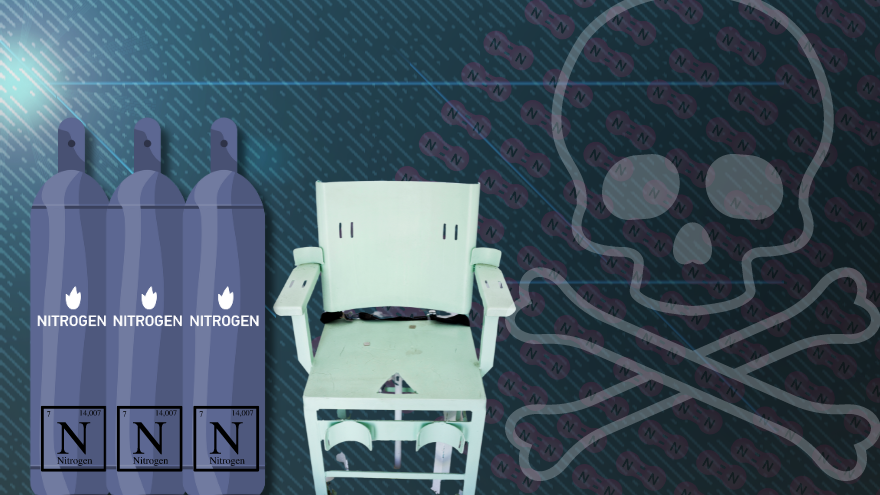Alabama can move forward with its first execution by nitrogen gas asphyxiation.
Kenneth Eugene Smith appealed to the United States Supreme Court for the alternative execution method. Although the court granted his request, his execution has been repeatedly delayed by protocol failures and legal challenges.
While Alabama is one of three states that permits nitrogen gas asphyxiation as a method of execution, the state had argued that inmates challenging an execution method must prove the alternative is readily available, per CBS News. An execution via nitrogen hypoxia has never been attempted before.
Smith sued the Alabama Department of Corrections, arguing the protocols of the gas-based execution came with too many risks for potential failures that could cause a stroke or serious brain damage. Smith's legal team sought an injunction to stay his execution while the case was litigated.
On Jan. 10, Judge R. Austin Huffaker of the U.S. District Court in Montgomery ruled against Smith, who he said “is not guaranteed a painless death.” Huffaker wrote that the inmate “has not shown the current Protocol is sure or very likely to cause substantial risk of serious harm or superadded pain,” per Reuters.
The execution protocols include the inmate being strapped to a gurney with a mask placed on his face. Nitrogen gas will be pumped into the mask and Smith will breathe in the chemical until his body is deprived of oxygen. The gas will be administered for 15 minutes or for five minutes after the EKG monitor no longer detects a heartbeat.
Reverend Jeff Hood, Smith’s spiritual advisor, sent a complaint to the state’s DOC in December disputing the protocols. In order to accompany Smith into the execution chamber, Hood was required to sign a waiver acknowledging the risks and committing to stay three feet away from the inmate in the event that the hose of the breathing mask became dislodged. Hood argued the rule would prevent him from anointing Smith during his execution.
Opponents of nitrogen gas asphyxiation have compared the new execution method to human experimentation. A United Nations panel called nitrogen hypoxia “an untested method of execution which may subject him to cruel, inhuman or degrading treatment or even torture” and requested state and federal authorities halt the execution.
“We are concerned that nitrogen hypoxia would result in a painful and humiliating death,” the panel said in a Jan. 3 statement.
Smith was sentenced to death for his role in a 1988 murder-for-hire plot. He was initially scheduled to die by lethal injection in November of 2022, but it was ultimately called off by prison officials who could not find a suitable vein to connect an intravenous line to Smith. The incident prompted Alabama Governor Kay Ivey to temporarily pause all executions pending an internal review.
Smith's new execution date is Jan. 25.

